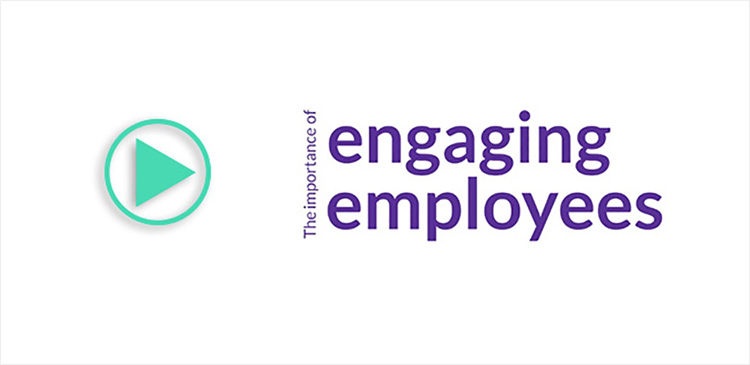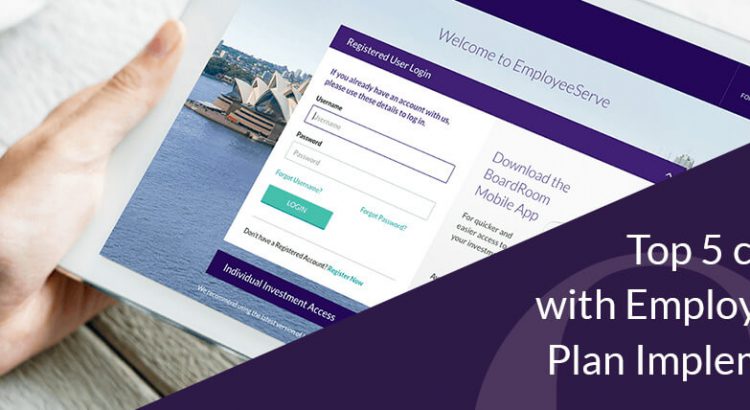Employee Share Option Plans or Employee Stock Ownership Plans (ESOP) are gaining popularity in today’s market. The driving force behind this is a competition for top talent and the need to incentivise and or boost productivity among our workforce, not to mention incentivise and reward staff for staying with your company long term. In addition to this the traditional methods of employing one-off short-term financial rewards have been under scrutiny in the past decade (financial crisis 2008 anyone?) as they have been proven to promote short term & high-risk decision-making behavioral tendencies.
So, Employee Share Plans seems like a win-win for companies and as a result it’s not surprising that companies continue to find alternative avenues under the Employee Engagement framework to hire and retain staff in the longer term and help promote specific behavioral traits in line with company culture through the implementation of an Employee Share Plan.
Whilst we have seen an increased uptake of this emerging trend, many still struggle to optimise and reap the intended benefits of an Employee Share Option Plan program largely due to concerns over several perceived challenges.
#1 - Mobile participants due to the emergence of a Global Workforce
With the world becoming ever more globalized it’s not surprising that our workforce has followed the trend. This globalization of the workforce has posed challenges for companies deploying global Employee Share Option Plans for a variety of reasons. Currently, global participants need to go through tedious administration processes with HR to set up their Central Depository (CDP) account, receive physical offer letters and have near zero visibility on their equity plan information in real time.
As a result, we have seen some global participants go as far as taking leave to travel to the respective equity issuing country to open their share depository accounts with the local exchanges to enable transmission of shares in their name. This process is not only tedious it’s completely impractical and unnecessary with the right partner.
#2 – Manual Administration and Management of Employee Share Option Plans
Believe it or not, in this digital age most companies still manage their Employee Share Option Plans on a spreadsheet. Whilst spreadsheets are known to be robust and “excel” (*pun intended) in capturing static information for operational purposes they have a drastic impact on ease and efficiency of implementation and administration of Employee Share Option Plans.
User expectations are shifting drastically, we all demand “relevant and insightful” access to information “anytime and anywhere” at our convenience. In answer to this, it is imperative to find a dynamic solution to capture, process and report information in real-time to enable participant visibility and reach without creating a manual resource drain.
#3 – Misalignment on Perception of Employee Share Value
Whilst many companies and employees have seen the benefit of adopting an Employee Share Plan, uptake across ASEAN is slower as employees continue to value cash reward as a variable incentive plan.
The current behaviors from a cultural standpoint are more aligned towards short term instant gratification due to a lack of understanding of how equity is a form of reward and recognition for their efforts. The “cash is king” mentality still reigns supreme, and we all know the risks associated with this mindset.
#4 – Lack of Internal Resources & Capability to Manage Strategic Imperative
This is potentially the Achilles heel of successful implementation and administration of Employee Share Option Plans, a mindset that this is a box ticking exercise and no different to periodic transaction activities like payroll.
This can be due to any number of factors, a lack of cultural acceptance within the organisation of equity plans or it’s seen as a cumbersome task. Typical management of Employee Share Option Plans on a spreadsheet can be extremely tedious and, in the more complex cases, a full-time job for 1 full time equivalent. There is a wealth of time-consuming administrative processes that need to happen; the offer management process, vesting management, record keeping of participant information, liaising with participants on plan mechanism, leaver management, regulatory reporting, the list goes on. Many HR Practitioners don’t realise there is an alternative solution to the manual labour currently associated with administrating equity plans.
#5 – Traditional Record Keeping Solution
Most solutions in the marketplace today are designed for functional purposes only, they provide static data and are table driven. This is not surprising given most were designed with the sole aim of record keeping and generating reports for Financial Reporting, Payroll Tax Computation & Reporting.
What is surprising is that there is a global push in nearly every industry sector to focus on user experience. Especially in relation to employee engagement strategies, employees just demand more today, for Share Plans participants need to have real-time information access, share price movement, a one-stop integrated trading platform, and historical information for individual income tax declaration purposes. We live in a digital era and any solution that doesn’t embrace this is considered obsolete very quickly.
Looking For A Trusted Employee Share Plan Firm In Singapore?
We have designed an all-rounded encompassing solution comprising of an experienced Share Plan team of practitioners and a digital solution to help you manage your strategic initiative.
01 Learn more about EmployeeServe - our Employee Plan Services platform!

Contact us today to find out more about our class-leading solution.
Or you can also learn more about our Employee Share Option Plan (ESOP) services here.




